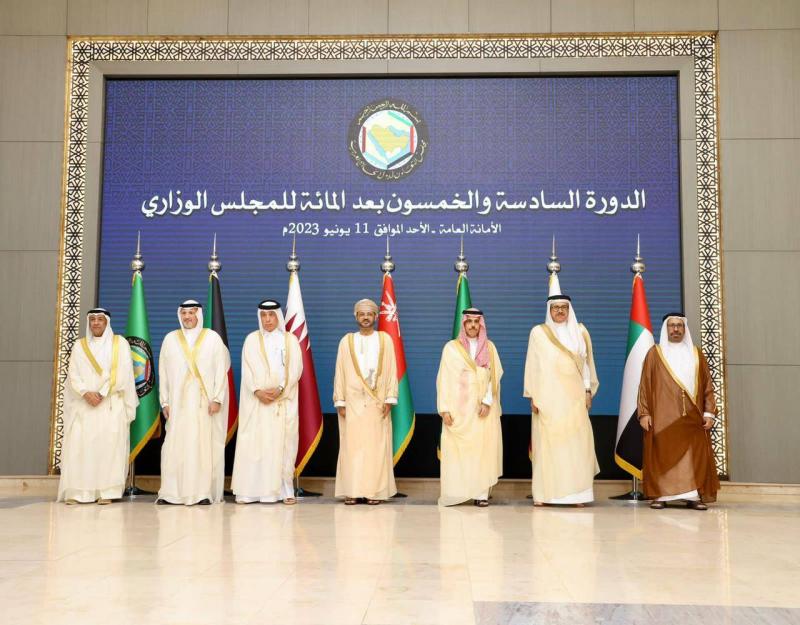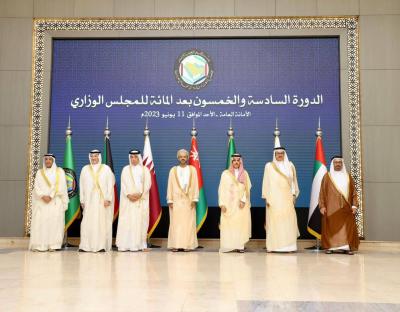The Gulf Cooperation Council (GCC) emphasized the necessity for Iran to fully cooperate with the International Atomic Energy Agency regarding its nuclear program. During the 156th session of the GCC Ministerial Council held at the headquarters in Riyadh, Saudi Arabia, it was confirmed that "it is important for Iran to commit to not exceeding the uranium enrichment level required for peaceful uses only." The council stressed that "negotiations related to the Iranian nuclear program should include all concerns and security issues of Gulf Arab states."
The council called for the election of a president in Lebanon and for ensuring that it does not become a launchpad for terrorism or drug trafficking. It also pointed to the significance of maintaining maritime security and waterways in the region, addressing any threats to maritime navigation lines, international trade, and oil facilities in the member states. In its final statement, the council reaffirmed its firm positions and decisions rejecting Iran's continued occupation of the three islands of the United Arab Emirates: Greater Tunb, Lesser Tunb, and Abu Musa.
The council demanded an end to targeting the Palestinian presence in Jerusalem and announced its support for efforts to achieve security and stability in Yemen. It highlighted the importance of supporting all initiatives aimed at helping Syria overcome its crisis. The council praised the Kingdom's efforts in bridging viewpoints, uniting ranks, preserving bloodshed, and achieving ceasefires in several local and international issues.
The council reiterated its steadfast positions and decisions against terrorism, regardless of its source, and condemned all forms and justifications of it, while also working to dry up its funding sources. It condemned all acts of terrorism, emphasizing the sanctity of civilians and civilian facilities such as schools, places of worship, and hospitals.
Furthermore, the council underscored the importance of international and regional coordination to combat terrorist groups and sectarian militias that threaten security and stability. The council welcomed the outcomes of the Gulf-European conference to counter extremist thought, held at the GCC Secretariat on June 6 and 7, with participants from GCC countries, the European Union, and various specialized centers studying this phenomenon and addressing its repercussions.
The ministerial council affirmed the decisions of the Supreme Council in its 43rd session in 2022 regarding relations with Iran, and the fundamental pillars to enhance those relations, including "full adherence to the principles of good neighborliness, mutual respect, international laws and charters, non-interference in internal affairs, resolving disputes peacefully and through direct dialogue, and refraining from using force or threats, all of which ensure the foundations of security, stability, and peace in the region."
The council demanded Iran's commitment not to exceed the uranium enrichment level required for peaceful uses and to fulfill its obligations and fully cooperate with the International Atomic Energy Agency. It also affirmed the GCC states' readiness to collaborate effectively on this issue and stressed the necessity of participating in all regional and international negotiations and discussions regarding this matter. The negotiations should address not only the Iranian nuclear program but also all security concerns of Gulf Arab states, contributing to achieving common goals and interests in the framework of respecting sovereignty, good neighborly policies, and adherence to UN resolutions and international legitimacy to ensure the enhancement of regional and international security and stability.
The 156th meeting of the GCC Ministerial Council commenced on Sunday at the Secretariat in Riyadh, chaired by the Minister of Foreign Affairs of Oman, the current president of the ministerial council, Badr bin Hamad Al Busaidi, along with the participation of the Secretary-General of the Gulf Cooperation Council, Jasem Mohamed Al Budaiwi.




